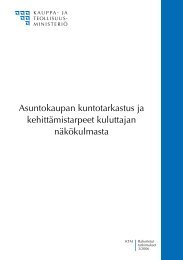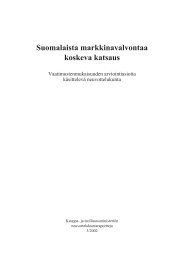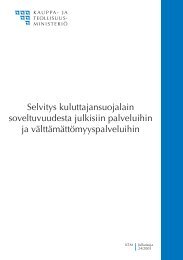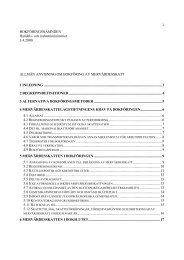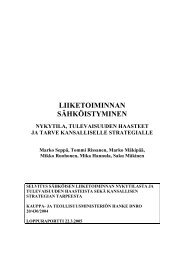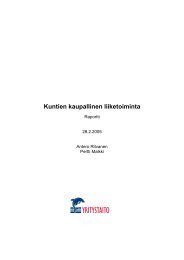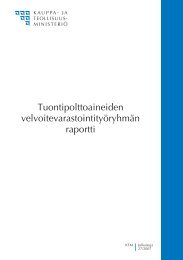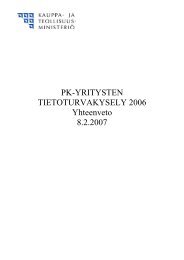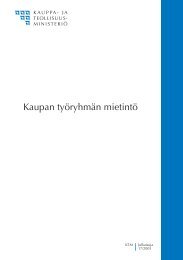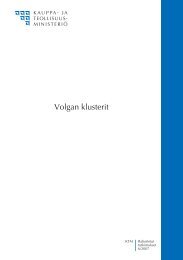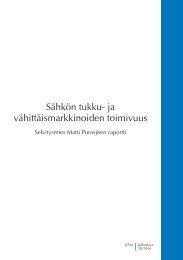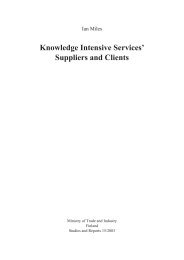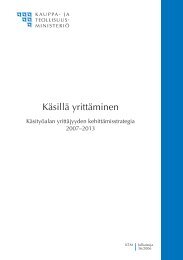Lainsäädännön kilpailuvaikutusten arviointi
Lainsäädännön kilpailuvaikutusten arviointi
Lainsäädännön kilpailuvaikutusten arviointi
You also want an ePaper? Increase the reach of your titles
YUMPU automatically turns print PDFs into web optimized ePapers that Google loves.
125<br />
Appropriate impact analysis enables also the critical evaluation of different alternatives<br />
to meet the intended outcome of regulation. Therefore, successful analysis<br />
helps to avoid or at least minimize any adverse impacts of regulation and utilize<br />
more effectively the advantages, which viable competition creates for the firms<br />
and, furthermore, by improving the productivity of society as a whole.<br />
Impact analyses are never perfect and hence the development of the analysis methods<br />
has to be a continuing process. In order to meet a sound methodology, it is vital<br />
that individuals and organizations in charge of the development process<br />
open-mindedly utilize the experiences and feedback given by all the relevant stakeholders.<br />
This naturally requires that feedback provided to the developers should<br />
be constructive and genuinely forward looking, and on the other hand, the method<br />
developers should appreciate the long-term experience behind the given feedback.<br />
This process raised a number of questions worth further research. One of these<br />
questions was how to take the point of view of companies into account in the impact<br />
analysis. Typically, lobbying has a negative image in the political decision<br />
making. But one can also ask, is lobbying really a negative phenomenon for the<br />
common good. Even if the feedback or criticism given by the interest groups is an<br />
outcome of their own goals and hence biased, most of the legislative proposals have<br />
a complex impact not only on firms, but also on the competition process itself.<br />
Therefore, the variety among commentators is important for the purpose of creating<br />
a better regulatory environment. Also, the problem of special pleading can be<br />
largely avoided by creating proper instructions for the persons in charge of the legislative<br />
proposals. This supports the creation of a procedure of requests for comment<br />
as well as for the analysis of comments.<br />
One may also dwell upon the question whether the impact analysis should be carried<br />
out by external experts. The presented methodology with a transparent impact<br />
analysis and subsequent thorough documentation enables a critical assessment of<br />
the analysis. This, in turn, sets constraints to both the political and economic special<br />
pleading, but also encourages the using of external expertise. It can, however,<br />
be useful to create some kind of de minimis rules for the use of specialists outside<br />
the legislative proposal makers in order to carry out appropriate impact analyses in<br />
more extensive and complex cases.



